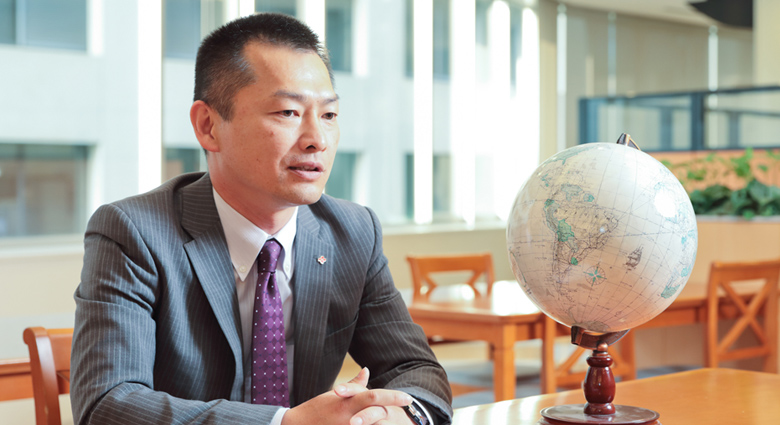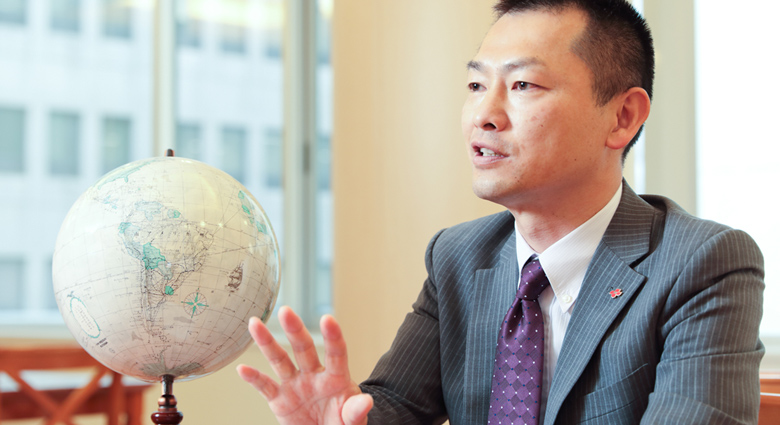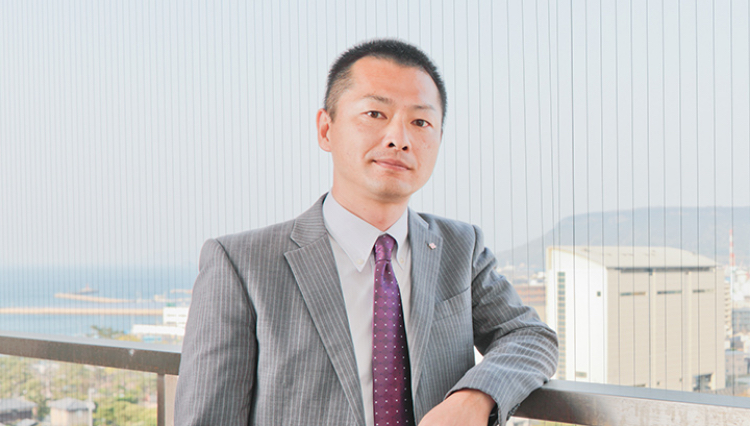The Ras Laffan C Power and Water Project in Qatar was the first international independent power producer (IPP) project in which Shikoku Electric Power Company participated. Located in a desert, Qatar has very few water resources. Consequently, the project involved both generating electric power and drinking water from sea water by making effective use of the waste heat generated by the power plant’s boilers. The gigantic plant, one of the world’s largest, has a generating capacity of 2,730 MW, and it desalinates 290,000 tonnes of water a day. Construction got underway in the summer of 2008, and by 2011 the plant went into full commercial operation and it continues to operate smoothly today. I was stationed at the site from the summer of 2009 until January 2012. At the time construction began, the capital city Doha, about 85 kilometers south of Ras Laffan, was a tiny city with only several international chain hotels. Doha has since transformed itself today into a metropolis lined with tall buildings and commercial facilities. I feel proud that I have contributed to the city’s development.

I was seconded from the Shikoku Electric Power Company to Ras Laffan in the project’s initial phase to set up a maintenance system. I was stationed on site as the person responsible for maintenance, and the plan was to form a maintenance team of 40-50 people led by three or four lead engineers under my supervision, whom I was also involved in hiring them. Most leader-level engineers in Qatar are Indian or Pakistani, each of whom have distinct national characteristics. Indians are very talented, but tend to be proud and assertive, whereas Pakistanis have pleasant personalities and yet are often reserved. I had a hard time selecting the right people, as I had no previous experience with hiring and at the time of job interview I could barely tell their faces apart. As it turned out, the personnel I hired shared my hardship right from the start and despite their assertive natures, they helped me out numerous times when I was having difficulties. We struggled with everything at first once actual maintenance operations got underway. Of course, I could get support from Japan, but I was so out of my depth that I didn’t even know what kind of support to ask for. Even with these initial adversities, I managed to complete my duties satisfactorily thanks to the trust I had built with many local stakeholders and the exchange of information. Japanese people are said to be reticent and shy, but I believe we also excel at sensing the emotions of others nonverbally. This ability proved to be very useful for me in cultivating better understanding with multi-national personnel. I feel Japanese-style communication that do not rely on words alone are an unseen advantage that works the world over.
I had an experience I will never forget while working at the Qatar plant. During vacation season, the company president and other top managers took a weeklong holiday at the same time. That left me temporarily in charge of the entire plant for a week. Ordinarily I was only responsible for maintenance operations, so I felt tremendous pressure when suddenly given full responsibility for one of the world’s largest and foremost power plants. I remember being frightened from excessive worries and anxieties: “What should I do if something happens?” In the end, no major problems occurred, but the experience taught me again the importance and responsibility of stable plant operations and reminded me of the difficulties of maintaining stable operations at the Shikoku Electric Power Company’s own power plants. No matter the project, you must not focus all your energy on the development: rather, high priority must also be given to ensuring the project runs reliably and soundly. I learned this lesson through real-world experience.

I experienced many travails on the first international IPP project both for the company and for me. But thinking back on it now, I’m glad I served out my full term and I honestly feel it was an enriching experience. I could buit good relationship with Japanese people from other industries stationed and working in Qatar. Because we had similar problems and concerns, I often found kindred spirits in talking about subjects we had in common. These relationships are fascinating because it’s not uncommon to meet these people again by chance in unexpected places. For example, I am involved in a solar power project in Chile where I happened to meet a personnel I had worked with on the Qatar project. This IPP fields are world-wide but feels smaller after working abroad. It’s like the feeling of only 10 hours’ distance that I could go and meet my friends in Qatar. The International Business & Cooperation Department provides work that connects you to the world.



